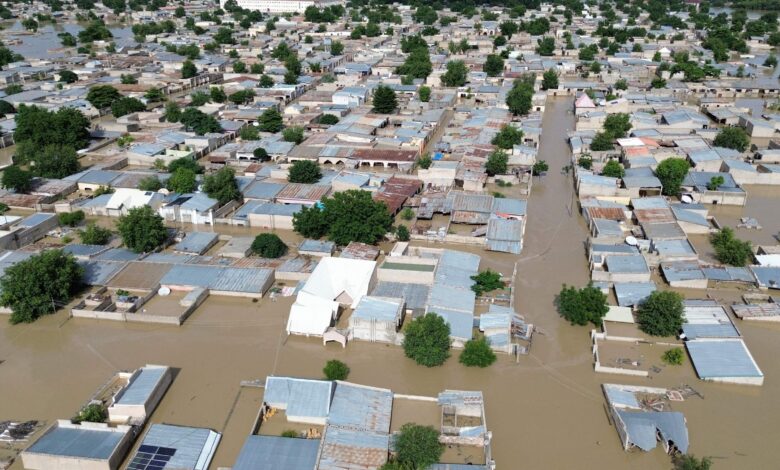Nigeria floods impact one million people following dam collapse.

The latest floods in the northern region of Nigeria have caused the death of thirty people, and more than one million people have been affected, according to the authorities. Catastrophic damages happened on Tuesday when the Alau dam on the Ngadda River in Borno State burst and forced people to leave their homes, flooding some of the worst parts of the state for the second time; the same dam burst 30 years ago.
The state government, however, stated on Wednesday that the dam is swollen to its full level because of the wettest rains. Predictably, officials predicted that the death toll would keep increasing. The current flooding is happening nearly two years after Nigeria’s most disastrous flooding in a decade, which claimed the lives of over 600 people across the country.
The National Emergency Management Agency spokesman, Ezekiel Manzo, said on Wednesday that the number of people killed was 30. “One million people have been affected so far,” said an aide for Borno State Governor Babagana Zulum, and he noted that with tracking for IDs for the displaced starting, the number could climb to nearly two million. Inhabitants of Borno’s capital city, Maiduguri, said that prices of food have risen due to the destruction of the central market by floods.
For instance, one time, flood currents whirled around a particular physical location of a zoo, and this partially wrecked the place, and several animals were set free. Mary Mamza, a resident of Maiduguri, said residents of the city were scared to venture out of their homes after an escaped crocodile was killed close to her house.
West Africa continues to suffer from what may be the worst floods it has seen in many years. Flooding in Nigeria has so far affected 2.3 million people this year, a number compared to 776,000 last year, the UN said. New research shows that African countries- among the hardest hit by climate change spend as much as 9% of their budgets on adaptation as they lose up to 5% of their annual GDP.



